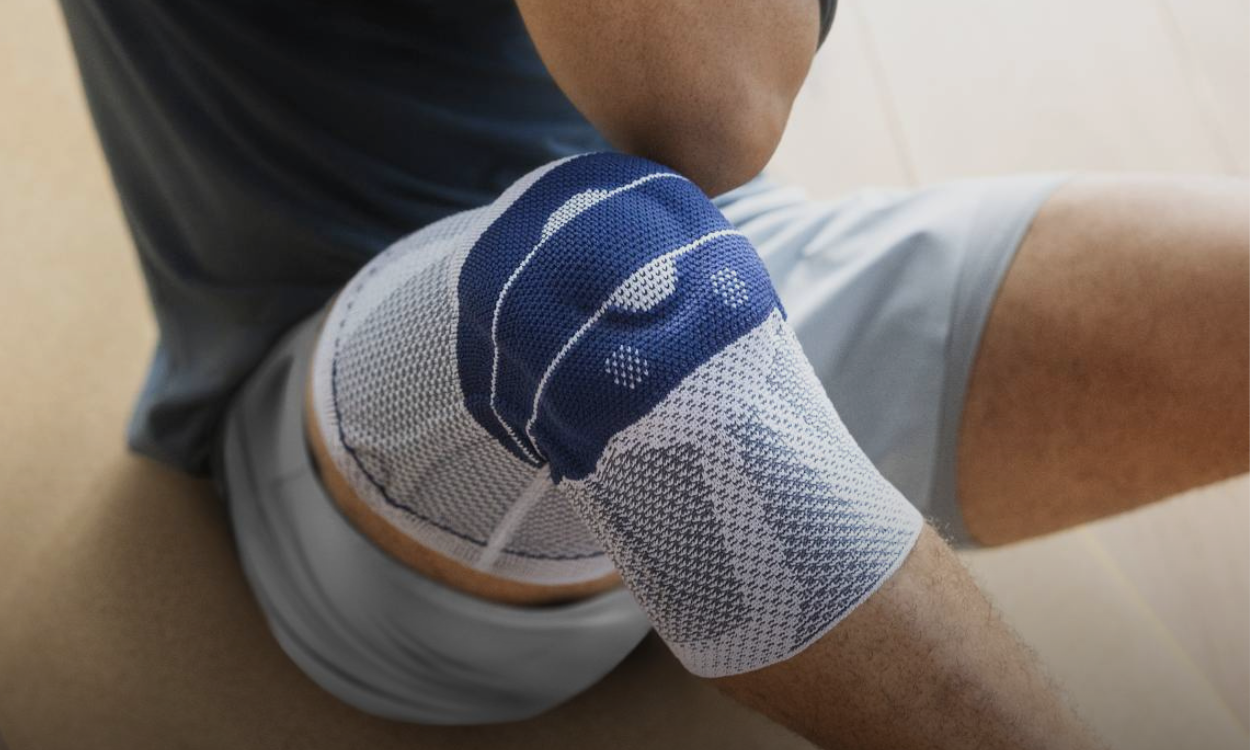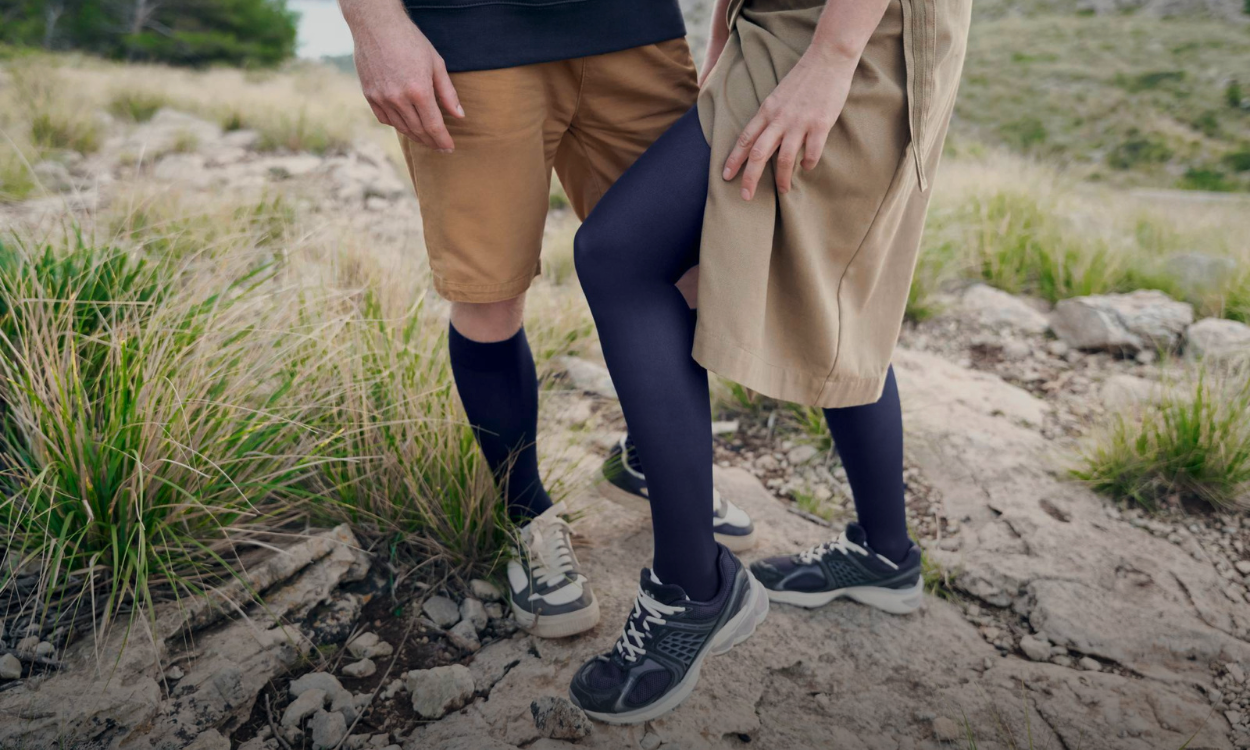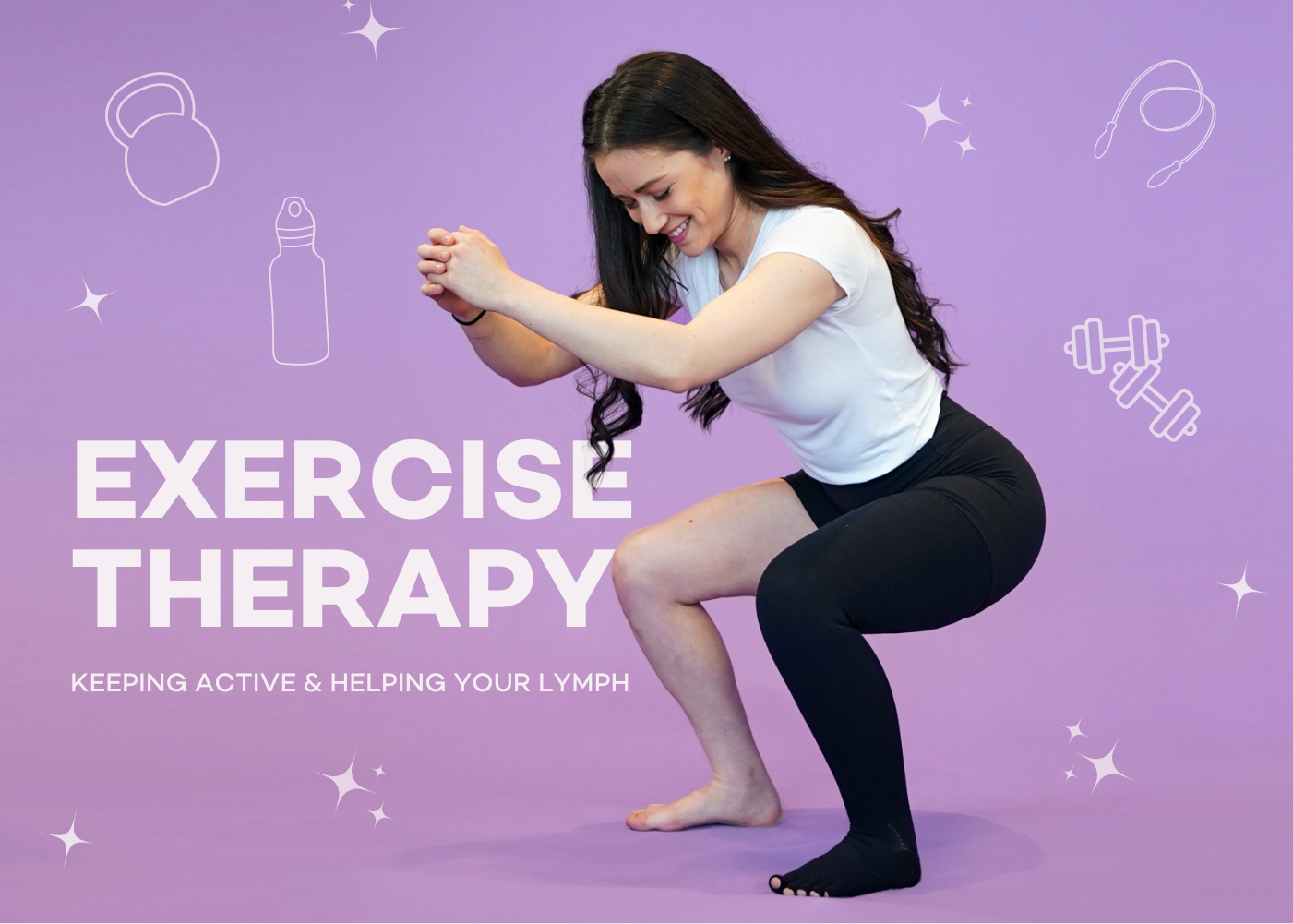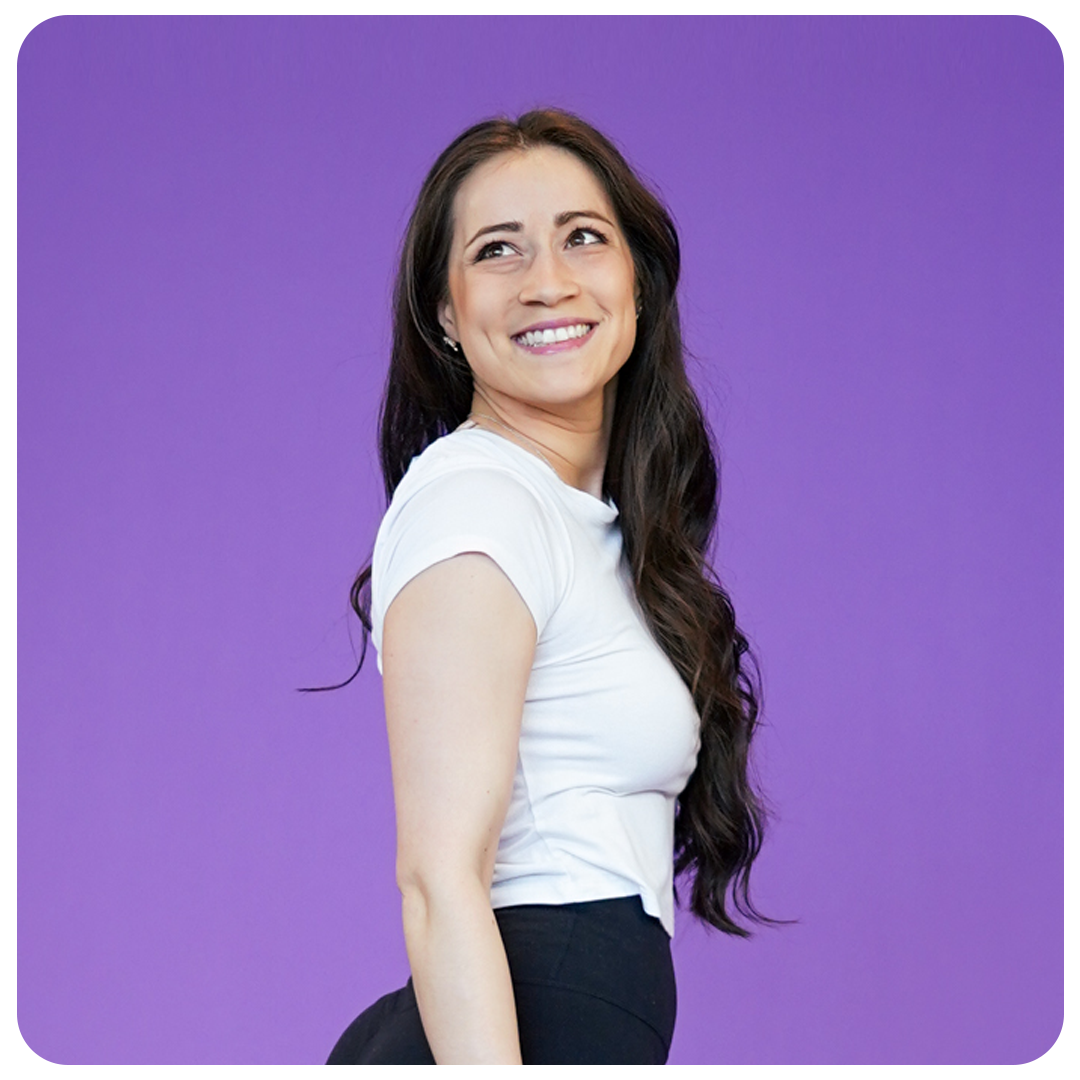Authored by Juliana Conte @lymphie.fit
Embracing exercise therapy as part of your care routine
As I sit down to write this blog I can feel the pain radiating in my body. My physiotherapist just left my home after our regular session. We recently added a few new elements to my personal exercise therapy routine. For the past two years, I have been suffering from thoracic outlet syndrome, which significantly reduces my arm function, and fibromyalgia - on top of my left leg lymphedema. Before this diagnosis, my lymphedema was much easier to manage. My arms were strong and perfectly functional so it made many of my daily care tasks much more manageable. As you can probably imagine, the impact of this change has not only been a physical one.
The last few years have been incredibly challenging for me, and I’ve had to drastically change my mindset when it comes to how I train. Being an athlete, I was very used to intense training. But the changing state of my body required me to slow way down. Through a lot of trial and error I had to search for a new level of training that my body was capable of. I can’t even say that I’ve figured it all out yet.
Every day I have to re-assess my body and what I’m capable of and do the best I can to listen to my body and make good choices.
It’s incredibly difficult when certain events impact your everyday life; it’s like relearning how to exist. Over time and through training, my mobility has been increasing as my pain decreases. But my symptoms can easily flare up, and sometimes I don’t know why. It’s so important that we all pay attention to our bodies so that we can tend to them in the most effective way possible.
As someone currently living in constant pain that varies in severity, I can say that it’s often really difficult to live with. I know how hard it can be to motivate yourself to move when it is the last thing you feel like doing. But the right exercise program will meet you where you are and slowly build from wherever that is. We must intentionally move our bodies to improve and maintain strength, mobility, and function, while decreasing pain and discomfort. If you’re unsure where to start, ask a qualified professional for help customizing an exercise plan that will be most therapeutic for you and your current circumstances. You can start with a few simple exercises for a few minutes a day and increase from there.

Exercise therapy is important for everyone to achieve and maintain optimal health, especially during times of injury or pain. For people with chronic conditions like lymphedema, exercise can sometimes be a confusing subject.
Many lymphedema patients have messaged me afraid to exercise and “do more damage", but the truth is that muscle contractions help pump lymph around our bodies! The most important thing is that you are moving your body in a way that is benefiting you, in addition to wearing the proper compression (if needed). Exercise therapy should be customized to your personal needs and goals, so everyone’s exercise routine will look different. Although your routine must be personalized, there are some things we all must have in common. I believe three pillars to successful exercise therapy are: consistency, adaptation, and patience. With these essentials implemented, we can keep our eyes on the prize of pain-free functional movement, and we will start feeling better!

Consistency is huge. First, you need to make a plan for movement that you can and will actually implement while enjoying the process. If you plan it so you hate it every time you exercise, you need to re-plan, or it will be very hard to stay consistent. Have an accountability partner or people that can encourage you through the process. Remember that progress is the goal, not perfection, and I don’t mean what other people judge as progress but it’s based on how you feel. If you walk 20 minutes every day and over time it feels easier, that is progress! It’s important to notice your little wins and let them snowball as you celebrate them.
The next pillar is adaptation. Some days you will feel better than other days; that’s expected. You need to adapt your program to the way you feel at the time. Don’t punish yourself through your routine, or it will not be therapeutic. Instead, allow flexibility and adapt to your personal capacity fluctuations on any given day. Over time, you may notice your capacity increasing, and you will need to then build on your current program to challenge yourself. You can do this in many ways including but not limited to increasing duration, repetition, or level of resistance, for example. Always remember not to overwork yourself. Going too hard and taking the rest of the week off due to flared symptoms or soreness is not the goal and can slow down progress. We must be cautious and attentive with our bodies before, during, and after exercise so that we can benefit from the therapeutic effects without overtraining.
This brings us to the last pillar, patience. Try not to place harsh expectations on yourself; this journey will require patience. I still struggle sometimes with frustration towards my limitations. It’s not easy to be patient when you are used to being strong and much more able. Being patient and consistent with a routine that is properly adapted over time is the way to resolving pain and any imbalances you may have. Staying active is also a great way to reduce stress, improve mood, and enhance overall resilience in coping with chronic conditions and/or pain. Therefore, exercise therapy usually benefits our mental health as well.
By embracing exercise therapy as a part of your regular routine, you can experience significant improvements in physical function and overall well-being. Remember, be consistent, adapt, and be patient. Every step forward, no matter how small, is a step towards a healthier and more fulfilling life. You got this.
Juliana





